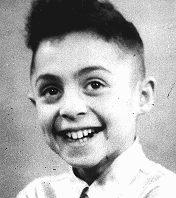In The Book Thief, both Liesel and Max suffer from nightmares every night. Liesel's nightmares are about the train her brother's death took place on. Max has nightmares about the day he said goodbye to his family (Zusak 220). Max and Liesel both suffer from survivors guilt. "I'm so selfish," explained Max, "leaving my people behind. coming here. Putting all of you in danger" (Zusak 218). Max clearly has the feeling of guilt. Other than the death of Warner, Liesel doesn't too much express her guilty feelings.
I've never personally experienced survivor's guilt but I'm very close to a person who has. My mother still suffers from guilt in her past. About ten years ago my aunt Kellee which is my mothers sister died. Kellee suffered from severe depression during her lifetime. My mother and aunt were very close sisters. My mom still loves to tell us stories about their childhood together. The way my mother tells it, my aunt was sort of like the boy who cried wolf. Kellee threatened to kill herself numerous of times until my mother eventually disbelieved her. The next thing she knew she had gotten a phone call that her sister was dead. It took a while for it to register and for her to believe what she was hearing. Come to find out, my aunt Kellee committed suicide and all my mother could think was "she should have known." For the last ten years my mother has blamed herself for the death of her sister. She knows that if she would have just listened she could have saved her sisters life.
Work Cited:
Zusak, Marcus. The Book Thief. NY: Alfred A. Knopf, 2005. Print.




